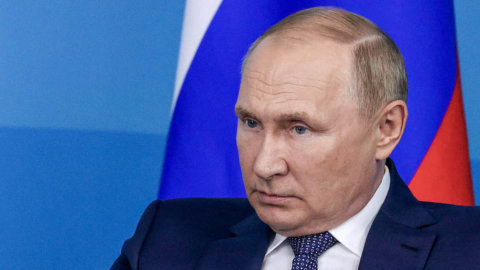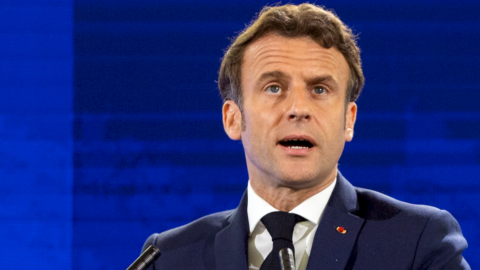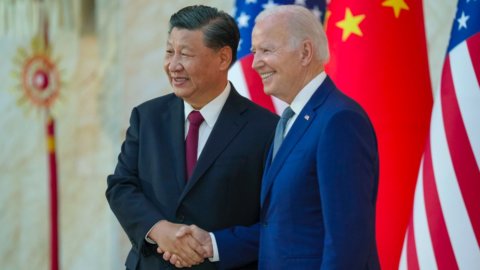At 19 in Brazil on Sunday 28 October, 23 in Italy (by virtue of the return of solar time the time zone is reduced to 4 hours), the die will be cast. And Brazil will probably wake up on Monday with a far-right president, linked to the Evangelical Church and not so unwelcome by the financial markets, which indeed already celebrated his victory in the first round, only to cool off after some announcements by Jair Bolsonaro on the subject of economic policy, during the three weeks leading up to the runoff. The polls are unanimous and have not yielded even for a moment: he is the favorite, the candidate who is not only populist but also openly racist, homophobic, misogynist and anything else would be enough to make him disliked by the majority of the population, which instead should reward him to the detriment of the former mayor of San Paolo and dolphin of Lula, Fernando Haddad, a member of the Workers' Party which governed Brazil – between Lula and Dilma Rousseff – for over a decade, but which evidently no longer convinces the 142 million Brazilians who will (mandatory) go to the polls on Sunday 28 October. Apart from the hard core devoted to Lula in the North-East, the poorest area of the country which still gratefully remembers the expansive social policies of the PT, for the rest the Bolsonarian wave is inexorably advancing: 56%-44%, say the polls on Friday, practically the definitive ones even if in Brazil it is allowed to publish polls up to 24 hours before the vote.
It is above all the South of Brazil that supports Bolsonaro: wealthy white population, agricultural entrepreneurs and the middle class who can't wait to move on after the Lava Jato scandals, which marked Lula's government experience in spite of himself, even costing him prison after a 12-year sentence for corruption. Compared to the judicial earthquake that has shaken Brazil in recent years, causing it to plunge into recession after years of great growth, the scandals - or presumed scandals - that seemed to be able to recover some points for Haddad are really trivial stuff. The latest in chronological order is the sex-gate of Joao Doria, candidate for governor of São Paulo, who supports Bolsonaro and who was caught in a video in which he participates in an orgy with escorts. Previously, a photo of one of Bolsonaro's sons, Eduardo, was elected to Parliament and immortalized with former Trump guru (and close to a certain European right) Steve Bannon, which cast a shadow on the political independence of the 'former army captain and which perhaps has to do with the scandal revealed by the Folha of Sao Paulo, according to which Bolsonaro's staff have been "spamming" fake news for months via Whatsapp (which in Brazil is used by 120 million people ). A little more serious, but perhaps not enough to change the voters' minds, was the story of Paulo Guedes, Bolsonaro's economic guru (indicated as the future finance minister or governor of the central bank), ended up at the center of an investigation for speculation on state pension funds.
[smiling_video id="66186″]
[/smiling_video]
However, nothing to undermine the rise of the reactionary Bolsonaro, which would also have something paradoxical, in a country where whites are, albeit slightly, in the minority compared to blacks and mestizos (48%), where 90% are of mixed origin % of the population and in which the poor were only allowed to vote by the 1988 Constitution, which also abolished slavery, just thirty years ago. Social fractures that Lula's progressive policies had managed at least in part to recompose but which were stopped, according to many international observers, by the questionable conditions of the dismissal of Dilma Rousseff in 2016 and the exclusion of Lula himself this year, first convicted despite always proclaiming himself innocent, then unable to run for the Supreme Court because he was detained in Curitiba prison. For that still very large segment of the electorate, the defeat of the PT would have dramatic consequences: in addition to being a militarist, Bolsonaro is in fact also anti-social and hostile to the poor, as demonstrated by his ultra-liberal economic programme, albeit partially reduced in recent weeks, when due to propaganda calculations the far-right candidate has said he will not force his hand on pension reform e has held back on some privatisations.
For his part, the socialist Haddad has some cards to play: university professor, his figure has not been dirtied by Lava Jato and although he is a loyalist of Lula, he is trying to convince the more moderate electorate, who don't like the former trade unionist's "Venezuelan" tendencies too much. As mayor of São Paulo, Haddad did not leave a beautiful memory, but not a negative one either. He will also be able to count on the endorsement of all the candidates from the left who were defeated in the first round, even if the only one to bring along an interesting amount of potential votes is Ciro Gomes, who finished with 12,5%. The environmentalist Marina Silva, who in August was indicated as a possible outsider (and who, according to polls, would have defeated Bolsonaro in a possible runoff), was instead the victim of an unprecedented polarization of consensus and brought home just 1 %. If Bolsonaro's probable victory would recall Trump's feat, who surprisingly defeated Hillary Clinton, Haddad can instead attach himself to the precedent of the French elections, when rather than voting for Marine Le Pen (who among other things, in recent days, has even she defined “Bolso's” intentions as unpleasant and excessive), the voters chose Macron. How will the Brazilians orient themselves?





